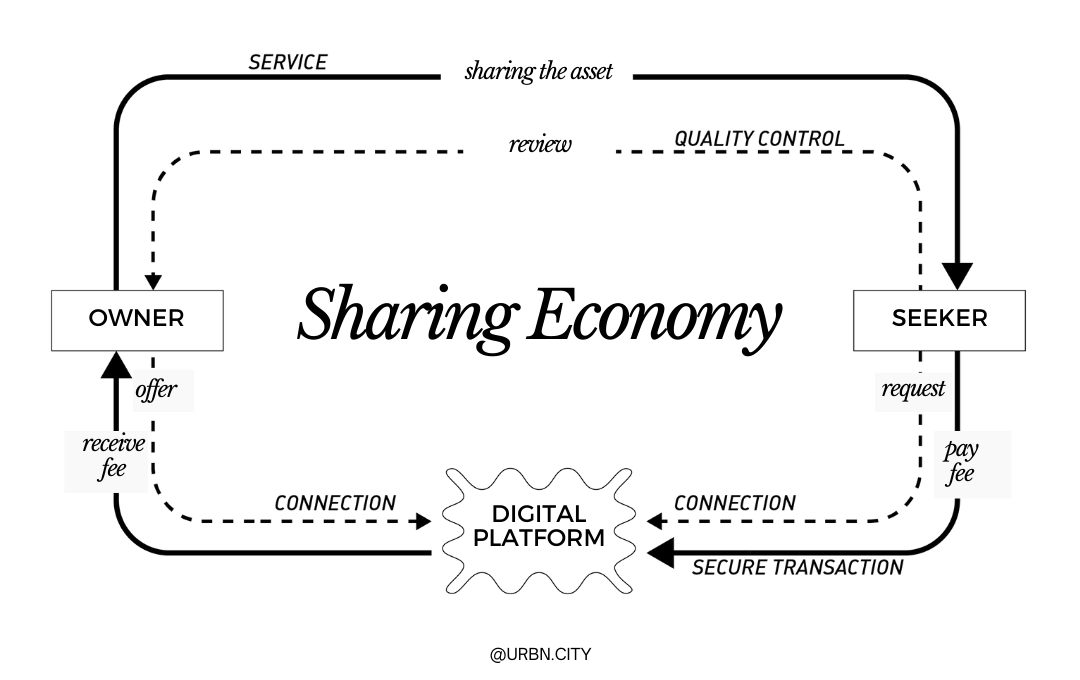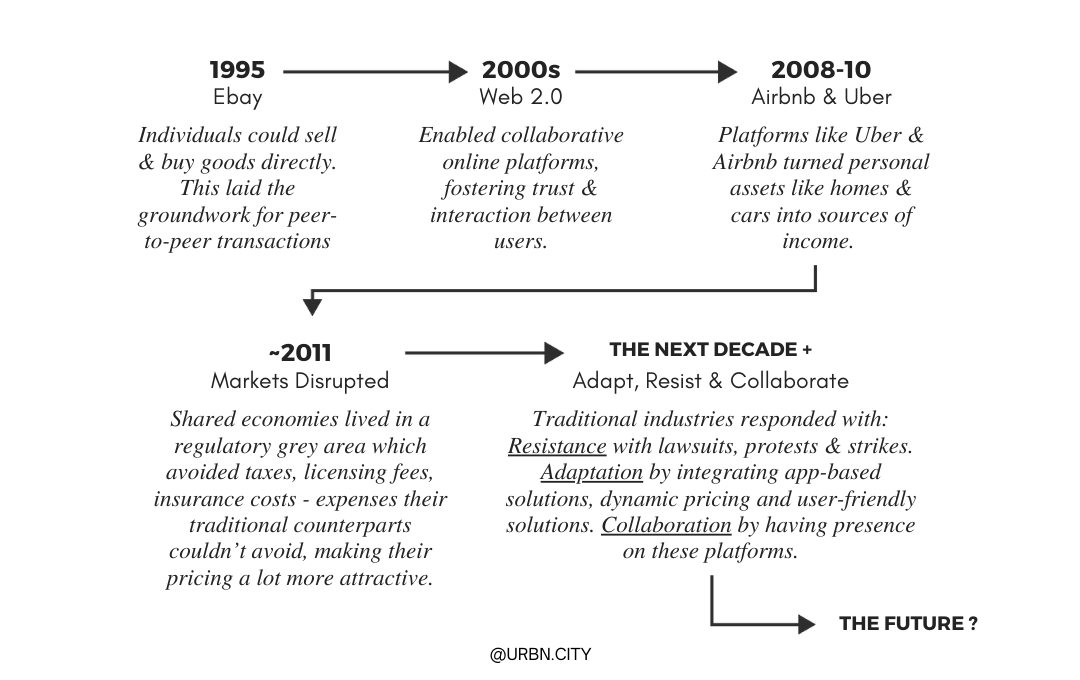The Airbnbisation of Our Favorite Cities
What was once a solution for short-term financial relief is now pushing out the very people it meant to serve.
Airbnb started off as an opportunity for young people to subsidize their life in expensive city centers - in the case of its founders - that city was San Francisco.
The founders, struggling to make rent, saw an opportunity when hotels were booked up for a major conference in SF: provide an airbed & breakfast in exchange for some rent money. A win-win providing travelers with affordable accomodation and residents with a way to supplement their income.
This was part of the sharing economy movement which was based on the idea of individuals sharing access to goods, services & resources facilitated by digital platforms.
Peer-to-peer transactions allowed people to share expenses of things they couldn’t afford on their own, be it an apartment or a car.
Digital Platforms enabled peer-to-peer transactions by connecting seller and buyer, securing payments and enabling quality controlling by peer review.
This concept grew out of economic and cultural shifts, including concerns about sustainability, the global financial crisis of 2008, and increasing internet connectivity. These factors popularized the shared economy as a viable, scalable model.
A timeline of the Shared Economy Movement
Artist at work
This was a ticket to financial freedom for people, like myself, who wanted to sustain their lives while they took risks with their ideas, like pursue their art, build a start-up, or even just take a pause in life.
10 days of hosting on Airbnb would cover your entire rent in a popular city center.
As living expenses were on the rise, artists, creatives, entrepreneurs, writers, musicians, could continue living in city centers because there was a way to subsidize rent.
Fast forward a decade, and Airbnb’s impact has drastically shifted, ironically doing a complete 180.
After being a beneficial market disrupter, challenging traditional hotels and making travel more accessible, governments have let it get too far.
Airbnb went from a grassroots movement to now becoming a monster on the rise if it is not controlled.
We’ve moved from subsidizing living expenses to full on profit-driven business models and now bigger players have entered the game and are going for the win. We find entire properties being purchased and rented to maximize returns in the most central, touristic parts of the city. Landlords are finding more financial gain in short-term rentals than long-term tenants, reducing the amount of housing available to the local community.
What’s ironic is that it is these locals that Airbnb was initially designed for and around.
Locals are the heartbeat of these destinations.
It is their presence in city centers that protects local authenticity and culture. It is their presence in these places that we all travel to see and experience.
When streets become lined up with transient visitors (tourists), shops & restaurants start to cater to that clientele, eventually creating generic, Pinterest-like spaces that have no soul.
While I am a lover of Airbnb and have benefitted from it as both a guest and a host, I believe it is time for governments to step in and define the limits of this new industry player. Here’s what some cities have enforced:
Airbnb is an idea worth protecting.
Born out of a need for youth to make ends meet while they hustled, Airbnb also fulfilled our desire for authentic experiences. It brought us closer as humans through cultural exchange and intimate hospitality. However, with the immense scale it has reached, Airbnb must now operate within sustainable boundaries that protect the local communities that are the pulse of these popular destinations.
These communities are the lifeblood of contemporary culture, local innovation, and historical continuity, and their preservation is essential for authentic travel experiences. Defining these appropriate boundaries cannot lay on the shoulders of hosts and guests. Governing entities. with their broader economic and social understanding, must take the lead in positioning Airbnb, and other such market disrupters, in a way that supports both innovation and sustainability.
While finding the sweet spot may take some time, it is the only way Airbnb can continue delivering the meaningful exchanges it was created to offer.






